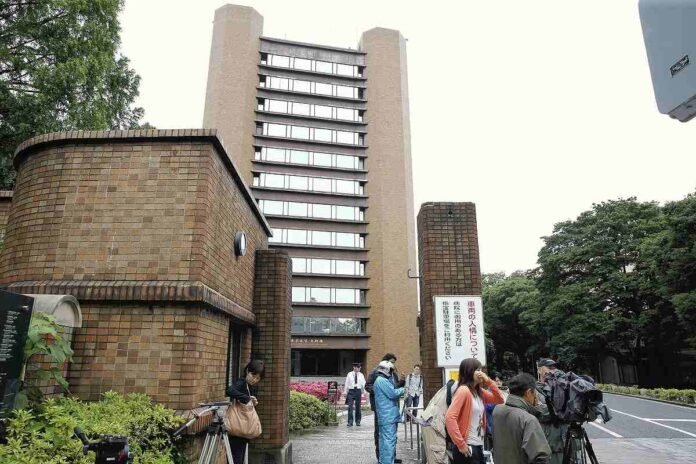The University of Tokyo Hospital in Bunkyo Ward, Tokyo
16:55 JST, May 31, 2024
The Ministry of Health, Labor and Welfare plans to closely monitor all medical institutions that perform organ transplants, following a series of incidents in which major university hospitals had to refuse organ donations from brain-dead donors due to, among other things, a lack of beds. .
The ministry admitted on Thursday that it was not aware of the issue. To understand the problem, it will receive reports on the number of organs rejected and the reasons for each rejection through the Japan Organ Transplant Network (JOT), an organ mediation agency.
The plan was unveiled when Hiroko Otsubo, the head of the ministry’s health and environmental health bureau, answered a question from Satoshi Umemura, an upper house member of Nippon Ishin (Japan Innovation Party), during a House Committee meeting of Council members. on Public Health, Welfare and Labor on Thursday.
As of February, there were 11 facilities for heart and lung transplants, 23 for liver transplants, 21 for pancreas transplants, 13 for small intestine transplants and 122 for kidney transplants. Through these facilities, the JOT purchases organs for patients awaiting transplantation.
The denied organ donations were revealed in a report by The Yomiuri Shimbun and a subsequent investigation by the Japan Society for Transplantation (JST). However, because the study was limited to hospitals at three universities – the University of Tokyo, Kyoto University and Tohoku University – the situation at other transplant facilities is unclear.
According to Otsubo, every time a transplant center refuses an organ, it reports the reasons to the JOT. However, there is no system in place to report the number of organs rejected and the reasons for rejection to the Ministry of Health.
“We will have the JOT report the number of such cases and the reasons [for those cases] to the government every year,” Otsubo said.
Leaders of the House of Lords committee are expected to discuss whether to order the ministry to report the information. The ministry plans to produce such reports upon request.
During the day’s meeting, Health, Labor and Welfare Minister Keizo Takemi was asked how he viewed the issue. “It is extremely unfortunate that we cannot keep up with the increasing number of donated organs. To ensure smooth transplants, we hope to collaborate with relevant academic organizations to address the issue,” he said.
According to the JST study, hospitals at the three universities refused donations of 62 organs in 2023 – specifically 36 lungs, 16 livers and 10 hearts. When asked why, and with multiple answers allowed, a common reason was a lack of facilities and staff, with twenty transplants not taking place due to a “lack of vacancies in intensive care units” and twelve being turned away because the operating rooms were not yet were ready.
The government is trying to prevent loss of confidence
The government had so far been cautious about organ transplant facilities refusing organ donations, saying medical systems for transplants should be developed by academic associations and other organizations.
The government’s decision to monitor organ acceptance at all transplant facilities appears to reflect fears that public trust could be lost, even though that trust is needed to advance medical transplants.
The move is an advance on the issue, which was exposed on New Year’s Day by a report in The Yomiuri Shimbun, and will help clarify how transplant facilities have had to refuse organ donations.
The order in which organs donated from brain-dead donors are mediated is determined by strict criteria.
Of the 62 cases in which hospitals at the three universities refused to carry out transplants, 54 organs were transplanted to lower priority patients at other facilities, according to an emergency survey conducted by the Japan Society for Transplantation.
The remaining eight organs were not used for transplants because other facilities had rejected them for medical reasons.
During the Diet hearing on Thursday, Umemura criticized the government. “The fairness enshrined in the Organ Transplant Act is not guaranteed, and this is an extremely serious problem,” he said.
It is hoped that the government will clarify the situation as soon as possible and take effective measures to address the problem.



